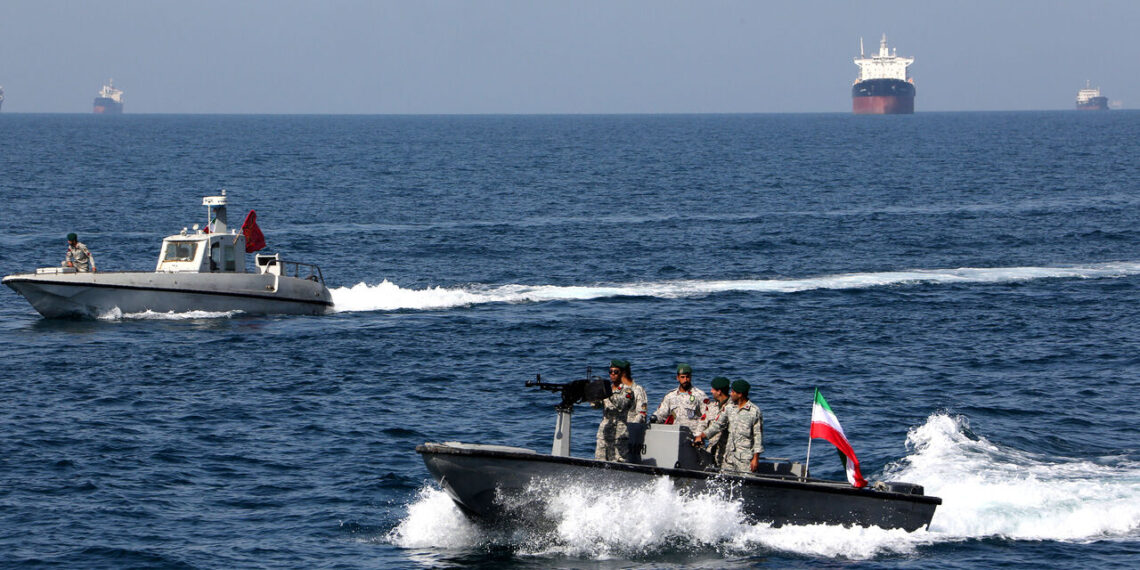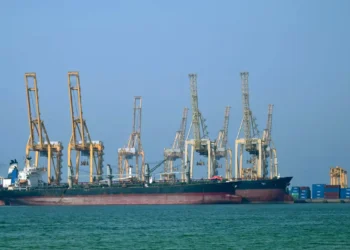DUBAI (Realist English). Global maritime operators are on high alert amid growing fears that a military confrontation between Israel and Iran could disrupt traffic through the Strait of Hormuz, the world’s most critical oil and gas chokepoint. Rising geopolitical tensions have prompted warnings from maritime authorities and energy analysts that even a limited conflict could trigger severe supply chain disruptions and cause global energy prices to spike.
The UK Maritime Trade Operations (UKMTO) issued a security alert Wednesday, warning that increased tensions “could lead to an escalation of military activity having a direct impact on mariners” in key shipping corridors of the Gulf and Arabian Sea.
Roughly 16.5 million barrels per day of oil and condensates, mostly from Saudi Arabia, Iran, and the UAE, pass through the Strait of Hormuz — along with more than 20% of global LNG shipments, primarily from Qatar, according to Bloomberg. A single disruption could result in global oil prices surging well above $100 per barrel, experts warn.
The concerns come amid reports that the Israeli military is prepared to launch a strike on Iranian nuclear sites, pending political authorization. The report, first revealed by Al-Monitor, coincides with a warning from Iran’s Islamic Revolutionary Guard Corps (IRGC) on Thursday, vowing a “more forceful and destructive” response than ever before should Israel initiate military action.
U.S. evacuates regional embassies
The risk of escalation intensified further this week after the Trump administration announced the evacuation of U.S. diplomatic staff from several Middle Eastern countries, including Iraq and Bahrain, following Iranian threats to strike U.S. military assets in the region if attacked.
“We’re staring down the possibility of a full-blown armed conflict,” said Jakob Larsen, head of safety and security at BIMCO, the world’s largest shipping association. “That would almost certainly close the Strait of Hormuz — at least temporarily — and send oil prices skyrocketing.”
Arne Rasmussen, energy analyst at Global Risk Management, echoed the alarm, calling a potential closure of the strait “an absolute nightmare for the oil market” in a statement posted to LinkedIn.
Oil market on edge ahead of nuclear talks
The renewed tensions come just days ahead of the sixth round of indirect nuclear talks between Iran and the United States, scheduled for Sunday in Oman. However, prospects for a breakthrough appear dim.
On Thursday, the International Atomic Energy Agency (IAEA) formally declared Iran to be in violation of its commitments under the Non-Proliferation Treaty for the first time in two decades — a finding likely to complicate ongoing diplomacy.
In a Wednesday interview with the New York Post, President Donald Trump said he was growing “less confident” that a deal to limit Iran’s uranium enrichment could be reached, adding Thursday that an Israeli military strike “very well could happen.”
Though Iran has threatened to close the Strait of Hormuz during past confrontations — including the Iran-Iraq War and the 2011 EU oil embargo — the waterway has never been fully shut. Still, observers warn the current combination of military posturing, economic pressure, and nuclear brinkmanship creates the highest risk in decades of serious disruption to global maritime trade.Инструменты


















